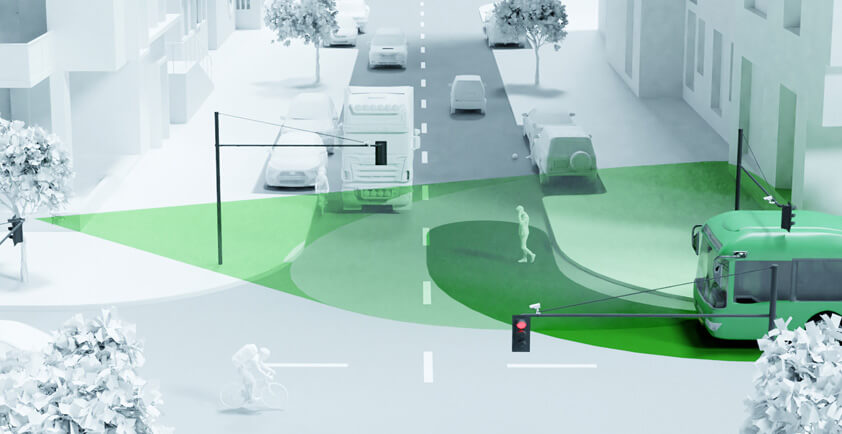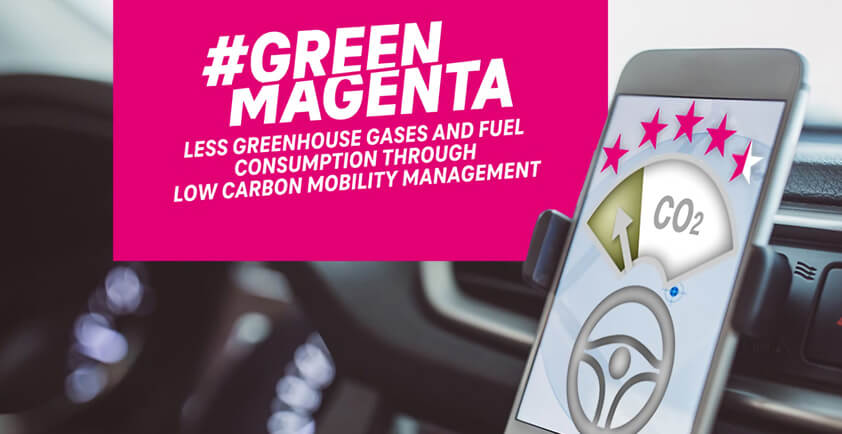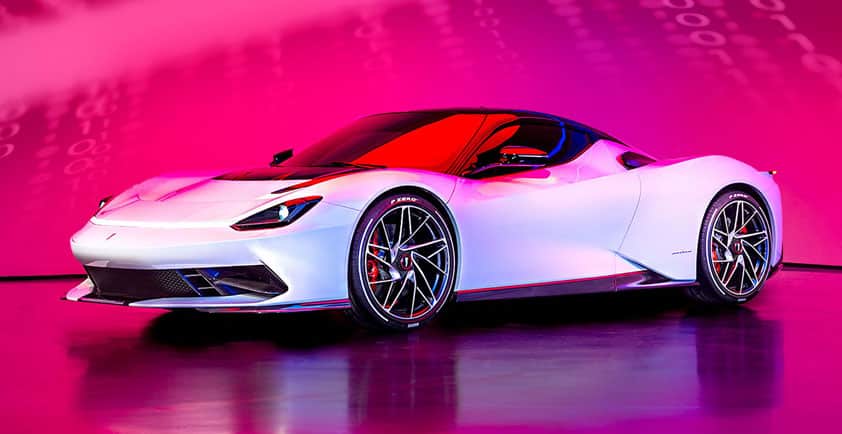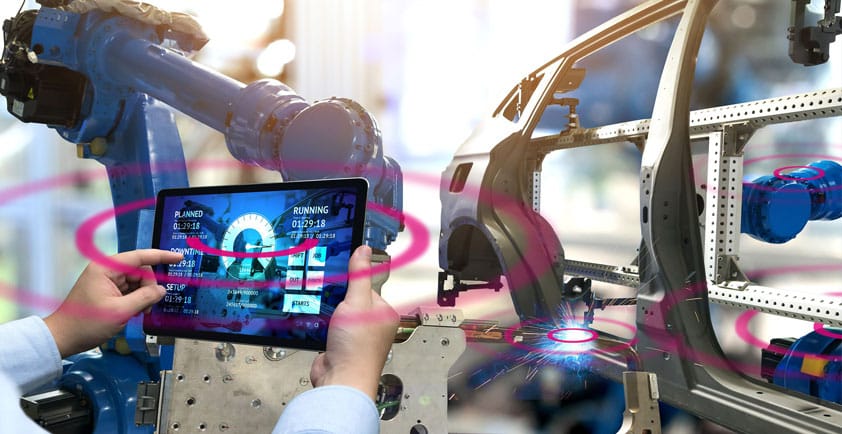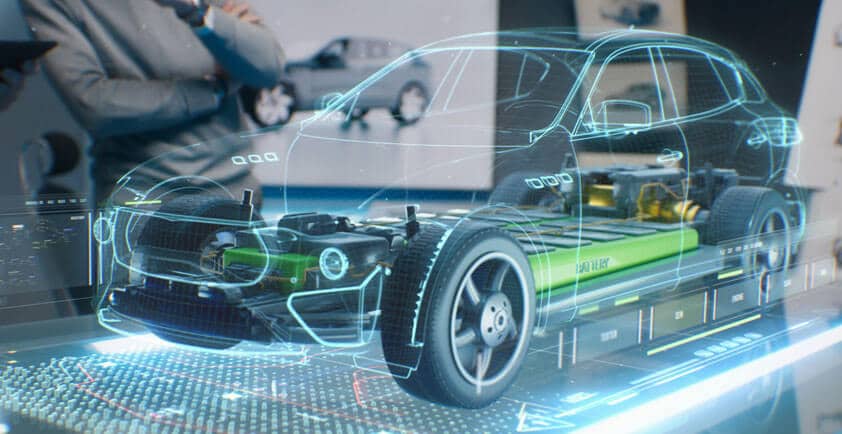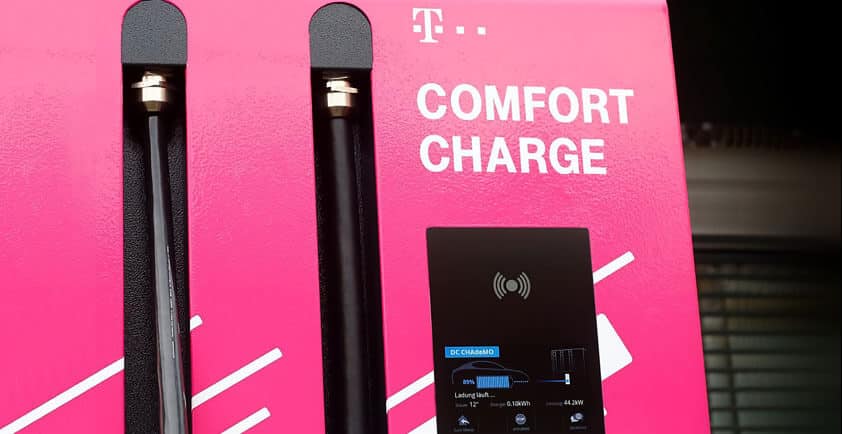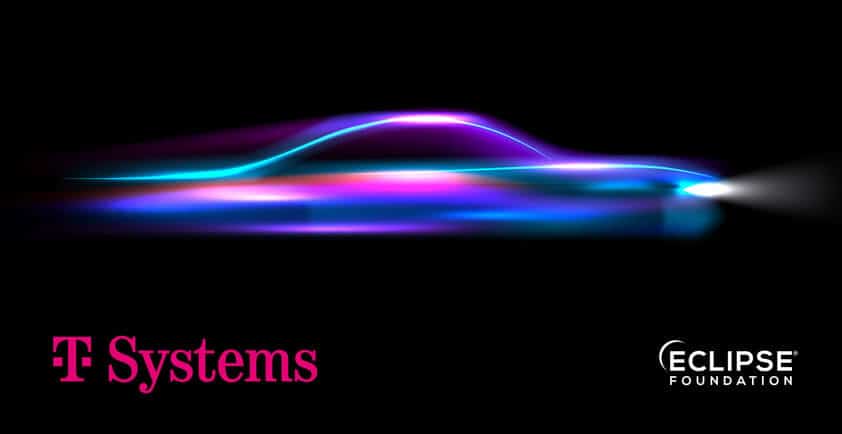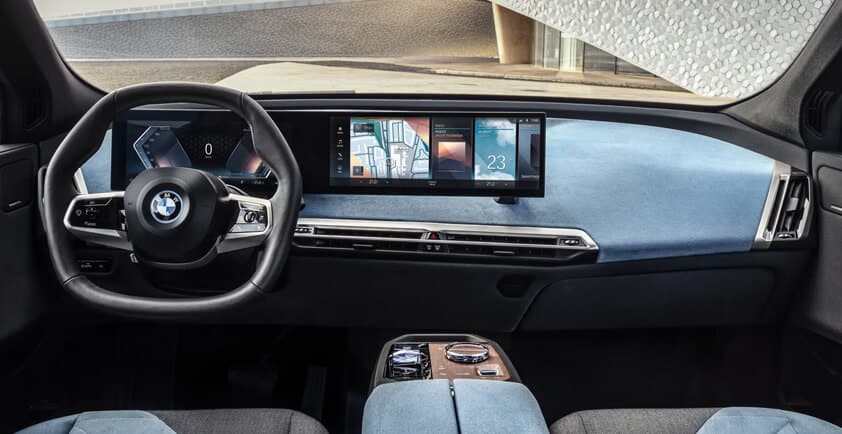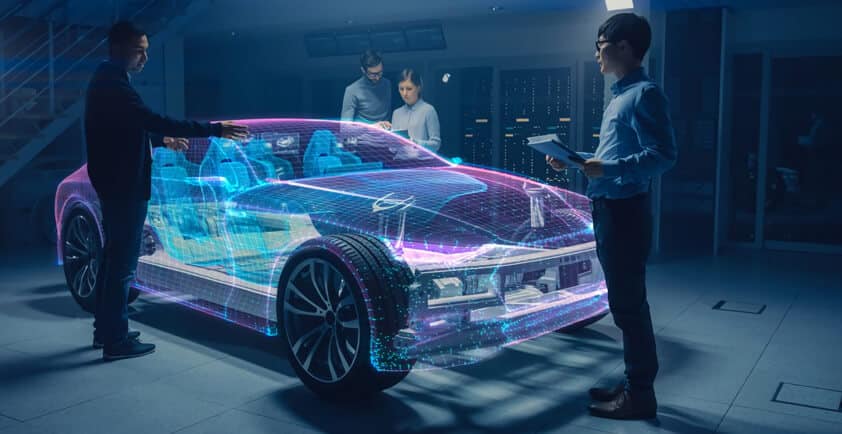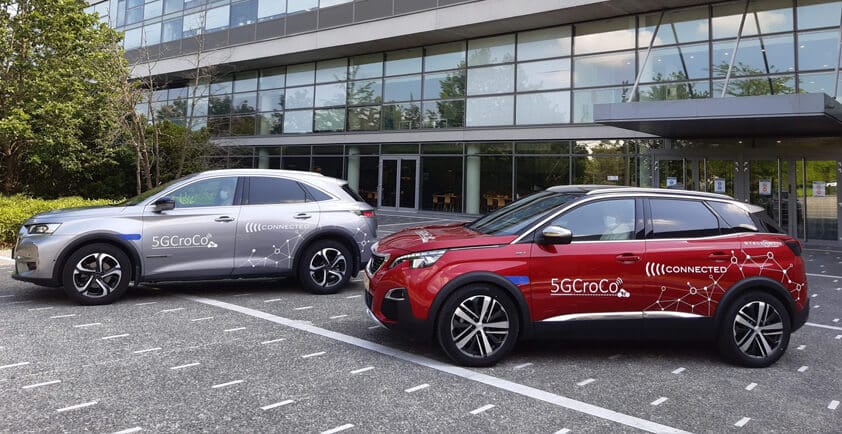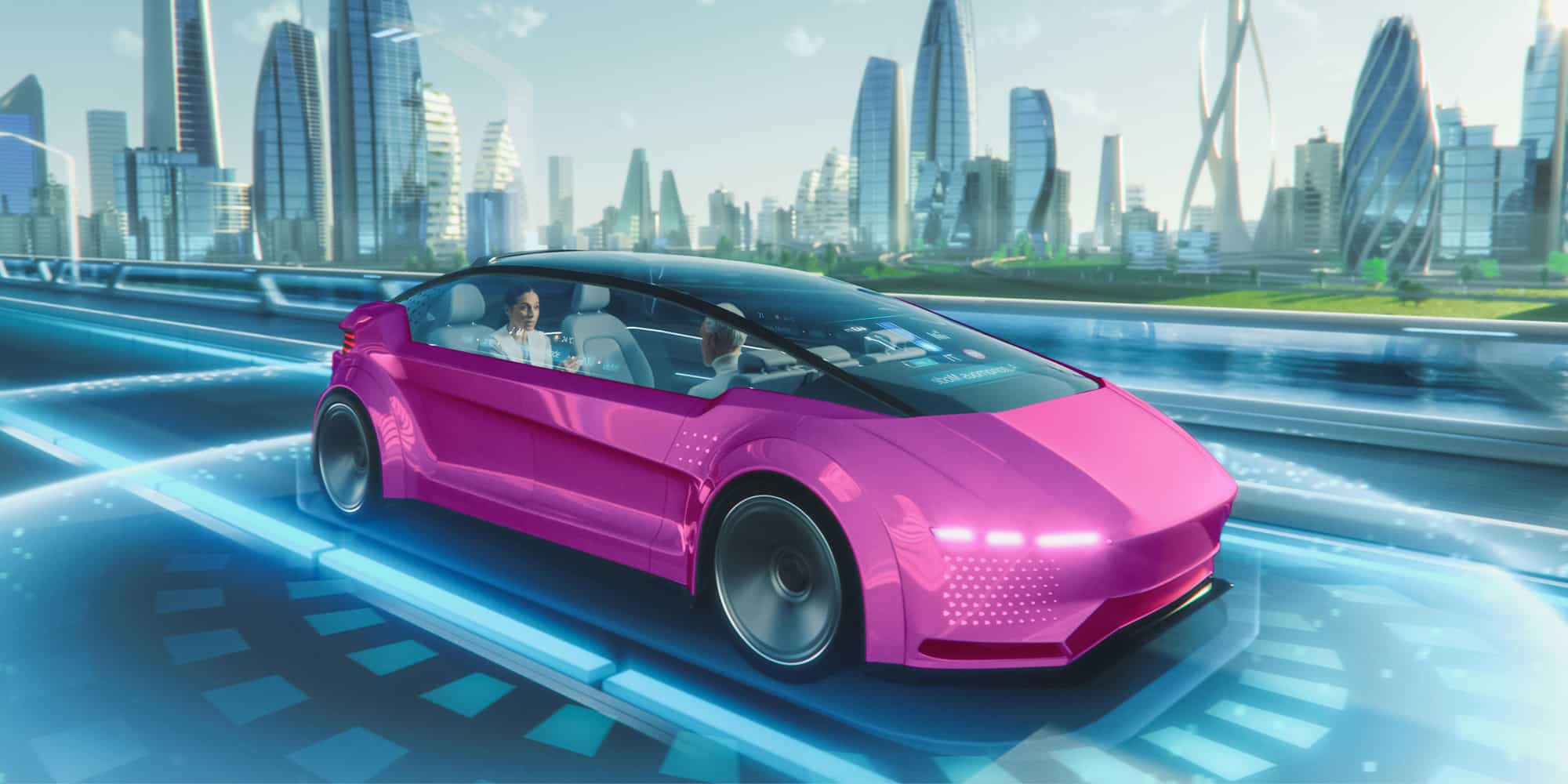
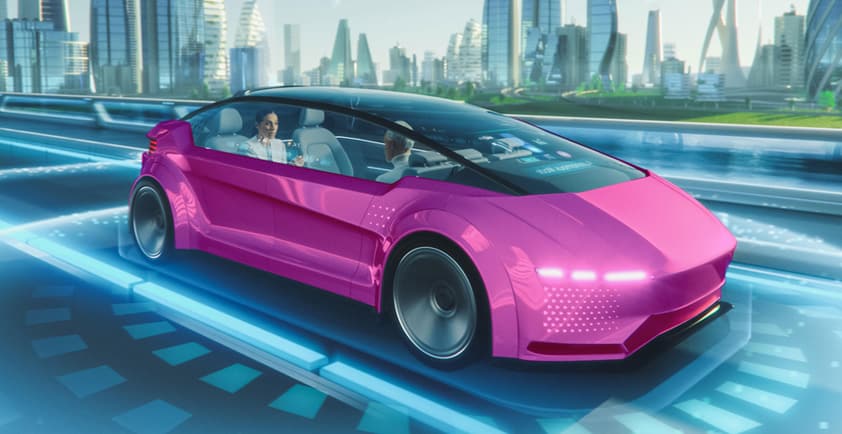
FULL SPEED AHEAD INTO THE FUTURE: RESILIENCE IN THE AUTOMOTIVE INDUSTRY
What has purred like a well-oiled engine for decades must now be put to the test. The automotive industry is in a state of upheaval. Autonomous driving, the e-car, networking - even customer behavior is changing. The industry is increasingly transforming itself from a car manufacturer to a mobility service provider. Only companies who well calculate opportunities and risks will survive. And build a strong business resilience.
Car manufacturers are confronted with a lot of changes. Customer demands are changing. More and more people want sustainable mobility, away from the fossil fuel vehicles and toward the e-car. As early as 2030, some European countries, such as the Netherlands or Sweden, have planned to ban the sale of fossil fuel vehicles. In addition, new providers are entering the market with autonomous driving. The automotive industrie suddenly competes with Internet companies and information and communication technology (ICT) providers. Or they cooperate in order to remain fit for the future.
As if all this were not challenge enough, the past year has revealed further weaknesses in the system. Supply chains were disrupted. In Germany, half a million employees had to go on short-time work. The traditional distribution channel collapsed. Car dealers had to close down in some cases. The following examples show what was helpful for dealers and manufacturers in this situation.
Through the lockdown with digitization - investments in customer service pay off
Today's customers are demanding. Anyone who buys a vehicle or takes their car to the workshop expects end-to-end support from their car dealer. And this is just as true in personal contact as it is virtually. Digital and mobile technologies play an important role. It includes online appointment booking as well as a digital showroom. Or a call, in which the service employee shows the customer - digitally supported by his tablet - directly at the lifting platform what the condition of his vehicle is. A conversation, almost as personal as a visit on-site. This helps if, for example during a lockdown, a visit to the dealer is suddenly not possible or only possible to a limited extent.
Perfect service involves the whole team: from the reception counter, sales and service to accounting. Information from the most diverse areas of the organization must be combined and accessible in one system. From sales and service organization, customer contact, new and used car management, the spare parts/accessories and service departments to warranty and goodwill processing.
An example from the Volkswagen dealer environment shows how such a solution can work. Together with the customer, T-Systems further developed the existing "Dealer Management System" (DMS) in line with the new customer requirements. Compared to its predecessor, the new system has a completely new interface architecture. Both new and existing systems are quickly interconnected here. The car dealer can now overlook the entire service process at one glance - from making appointments to workshop planning, order processing, right through to invoicing.
Increase transparency in supply chains
The impact of the Covid 19 pandemic has shown that global supply chains are vulnerable. Companies were hit particularly hard at the beginning of the crisis when several factors came together: Employees in quarantine, supply collapse, closed borders. Automobile manufacturers had to close plants temporarily, which also affected the supplier industry. Supply chains collapsed.
Managing these supply chains is a key challenge for the automotive industry. Few machines are as complex as a modern car. A car manufacturer has to coordinate around 1,000 suppliers who deliver their goods to its production site – in average 1,200 trucks per week. Well over ten million parts are processed every day. This is why logistics becomes a decisive factor. The information on when the components arrive and where exactly they are located is crucial for assembly.
This is the task of IT systems such as a "Supply Chain Control Tower". The system is not only named like an airport tower, it also looks like one. In a "control tower," employees monitor hundreds of thousands of key figures on large displays. They show where each individual part is located and whether it will arrive on time in production. Daily data updates include all kinds of information. From supplier inventory levels to processes in transportation and logistics centers. This ensures that production and logistics always have an overview of the necessary parts - including material flow, transport warnings and material consumption are used.
According to McKinsey, 93 percent of supply-chain professionals plan to focus on resilience of their supply chain. But in fact, only 39 percent have implemented a such centralized digital control-tower, that allows them to gain insights into the entire supply chain.
Together more successful in the long term
A global pandemic, such as the current one with Covid-19, shows only one side of the coin. Companies that have already relied on dynamic and digital solutions at an early stage will survive a shutdown more easily. But the pandemic will have long-term effects: Consumer behavior will change in the medium term. Customers of car dealers are increasingly willing to use online media. According to a study by Deloitte, for example, almost a quarter of customers in Germany would already buy new cars online.
The automotive industry is moving toward a network in which productions sites, machines and supply chains are closely interconnected. Data and analytics play a decisive role. The industry's goal is to both optimize production and create an improved user experience - for employees as well as for customers. To achieve this, companies need digital platforms that ensure secure collaboration.
This is one of the reasons why more than 20 companies joined forces in early 2021 to create Catena-X Automotive Network. An open ecosystem involving automotive manufacturers and suppliers, dealer associations, and equipment suppliers alike. The goal: to span a secure data network across Europe that meets the highest standards of data sovereignty. Based on the European standards of the International Data Space Association (IDSA) and GAIA-X. The Automotive Network thus has a trustworthy and secure infrastructure at its disposal in which members can efficiently and securely connect their data, assets, business processes and applications. Its goal is to increase the competitiveness of the automotive industry while improving efficiency in collaboration.
The automotive industry is already well positioned to meet the new challenges. To equip themselves even more strongly for the future, manufacturers and suppliers must now respond more strongly to customer needs, adapt their manufacturing, optimize processes and production lines. Digitization and especially the Internet of Things (IoT) are important tools for this.
Author - Caroline Bergmann - Spokesperson
